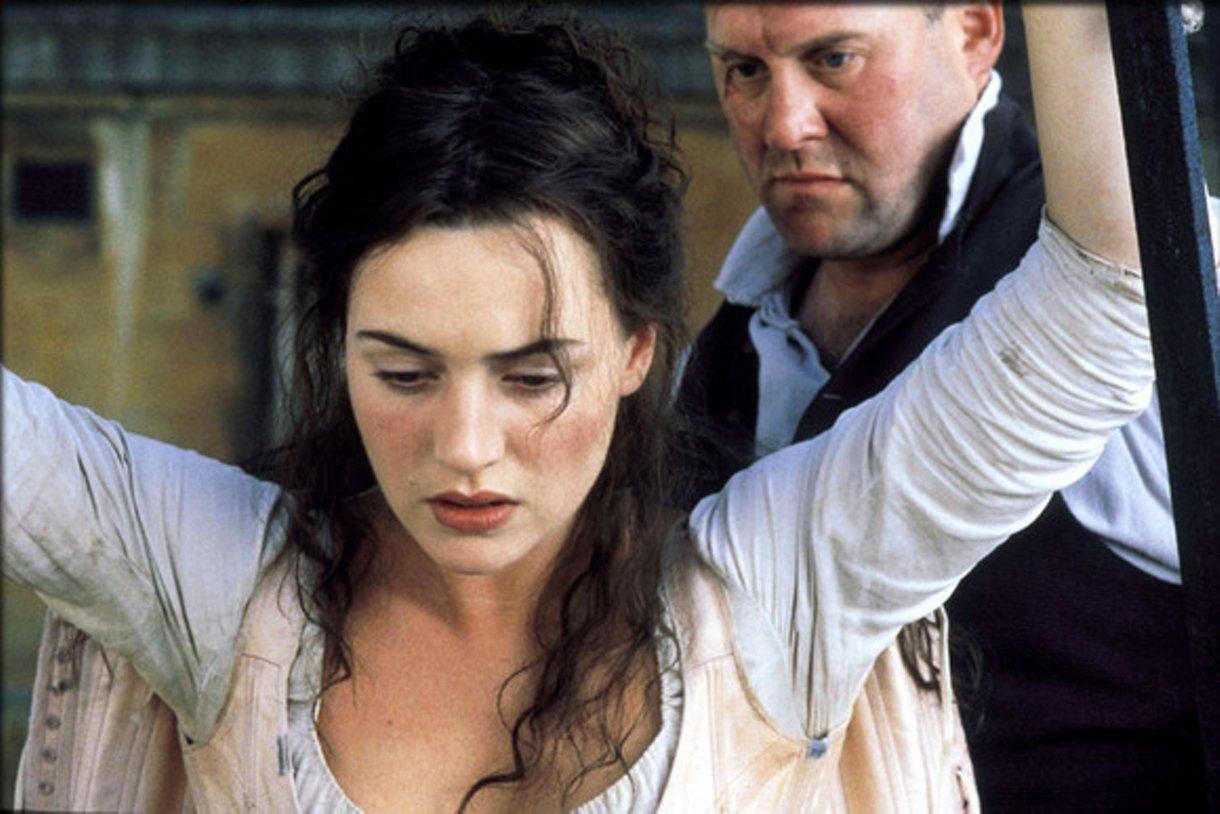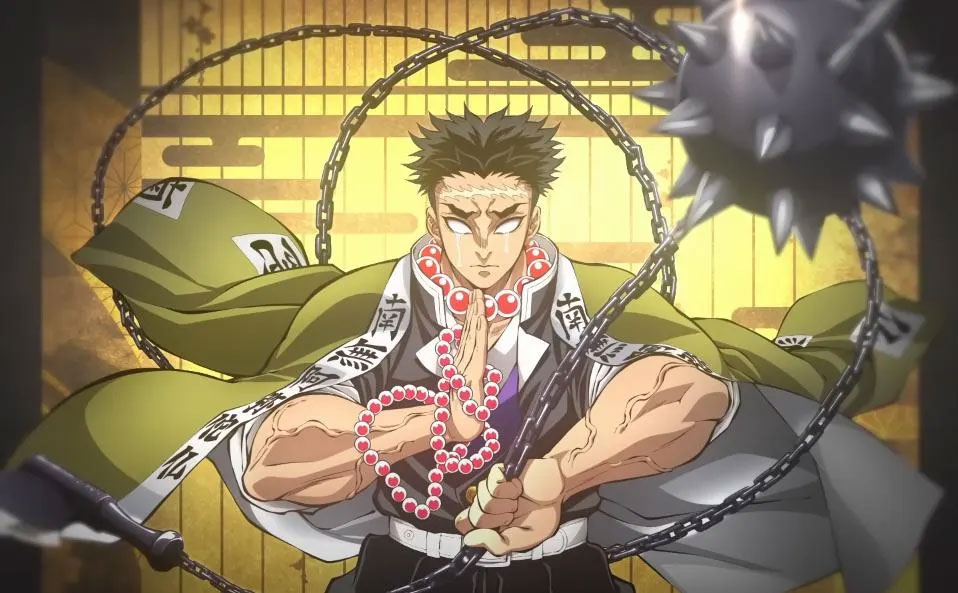
Under the blue sky, a woman stretched her elegant and white neck. She was intoxicated and stretched. All of this is kind of ambiguous. However, when she lowered her head, a crude executioner with her face turned down. Appearing in front of the camera, he gently stroked the woman's body and slowly put her down under the guillotine. All the ambiguous interest was replaced by a brutal pornography.
This is the first visual impact brought to us by the film "Quills". Obviously, this execution scene is a predictive contract between the director and the audience. It tells the audience what kind of film it is. Pornography and horror blend together. Pleasure and disgust will be the normal reactions of all audiences.
"Quills" is an American director Philip. Kaufman directed a fictional period drama about the second half of the French pornographic writer Thad's life. In this film, we see a life of Thad that is different from history, but it does not matter, because we have learned from the beginning of the film that such a film is by no means a simple biography. Here, Saad De's life is actually meaningless, it's just a character in a feature film. Rather than saying that pornographic novels are the driving force of Thad's life, Mo Ruo said that writing itself is what he wants to pursue. In this way, the pornographic meaning of the film is much less. Indeed, when we see pornography, we are often fooled by it, simply thinking that this is what we want to express in the work, as if human desire and pornography are synonymous. Obviously, this view is one-sided, and pornography is just one of human desires. When we see Thad using a quill pen, chicken bones, glass shards, and even his feces to write in the film, we can no longer simply think that this is just something related to pornography. Porn is a kind of desire, and writing is also a kind of desire. Here, the two are not distinguished from each other. They are equally important to Thad, who is crazy to the extreme. Therefore, what we see is a very excessive The person who can never be overwhelmed, as he said: "My writing is unconscious, like the beating of my heart." In this way, Thad has lost his identity as we see it, and he expresses it more abstractly. Chu is a person who struggles extremely for his desires. As for pornography and writing, they are just concrete objects borrowed to express this abstraction.
When we see the concept of human desire conveyed by pornography, we must not miss the meaning of power represented by terror. Human desire and power have always been in a state of opposition, otherwise there will be no conflict for the drama. Michael. Loyer played by Kane. Dr. Corral was brutal and ruthless, as can be seen from his punishments. Corral is a loyal defender of power, and power not only comes from political power, but also from social power. At the end of the film, when the printing house of the psychiatric hospital printed THAAD’s work, we know that THAAD Has been accepted by the society, and Dr. Corral is naturally loyal to the power from the society, and contributes to this power. However, when we truly believe that Dr. Corral is a defender of power, certain plots in the play personalize the image of this defender. We know that Corral was sent to stop Thad because he was a well-known psychiatrist. Not only was this doctor unable to stop Thad’s writing, he was actually mocked by Thad in a stage play. This is undoubtedly a huge insult to him. Thad’s actions are anti-power, and the recipient Dr. Corral sees it as a kind of resistance to self, so this power and desire contest is inevitable. With the addition of some human dignity factors, we must say that power is also a manifestation of human dignity. But all Corral's efforts were in vain after all, and his bride Simone eloped with a young architect. This Simone doesn't have much pen and ink in the play, but she represents a desire monopolized by power. Corral married Simone by a deceit and threat, but desire was never truly controlled by power, so Simone escaped from Corral's power under the influence of pornographic novels.
Power is often a superstructure that controls behavior and morality. In the West, religion is on par with political power. Therefore, the power of religion is also shown in this film. Joe Quinn. Father Courmier, played by Phoenix, serves as the director of the mental hospital. Although the pious Father Courmier held an attitude of tolerance and respect towards Thad, the so-called hospital shows that all this is only his personal opinion. The hospital in religion is a place to save souls, and those so-called fallen souls are souls that violate the will of religion. Therefore, it is impossible for Father Courmier to stand on THAAD's side. When Dr. Coral first arrived, Father Courmier opposed the doctor's attitude towards Thad. However, later, he and Corral jointly dealt with Thad, who had actually gone to self-destruction. In the end, no one thought that it was THAAD's sympathizer who cut off THAAD's tongue. On the surface, this was a helpless protection measure for THAAD, but it was also a religious method. , Which means that the disruptors of order must not be allowed to make any offensive words. If a religion achieves victory over infidels by violent means, then the power of this religion has already fallen to the extreme. Father Courmier could no longer find the power of God, and Thad swallowed the cross and committed suicide. The power of religion changed from salvation to killing, and Father Courmier could not find the real purpose and real morality. Regarding his depravity, we can’t just start with Thad’s behavior. The priest himself is a cowardly person. Although he is a clergyman, he has to admit that he is also a subject of desire, a person living in desire. . The real object is Kate. Madeleine played by Winslet. The priest can't get rid of this temptation, so he is truly crazy, hopeless, just like that religion, moral standards are no longer necessary for life. The mental hospital was also taken over by Dr. Corral.
Madeleine can be said to be the only woman in the film. She is the object of desire, the driving force of Thad’s creation, the goddess in Father Courmier’s heart, and the object of sexual abuse intended by Dr. Corral. The run-down nobleman Thad lives in a psychiatric hospital. This is a world isolated from the outside world. However, through Madeleine’s efforts, this closed situation was broken. Between normal and abnormal, the washerwoman set up It is a bridge, which is a channel of desire. It represents the abnormality of the outside world and the normality of the mental hospital. Needless to say, the relationship between Madeleine and the priest, obviously she is a religious demon, she seduced the kind-hearted Father Courmier and made him live in a life of trouble. Madeleine is beautiful, gentle, and kind. How does Corral deal with such an object of desire? When the whipping of Madeleine was about to be carried out, Corral stood and watched. His expression was intoxicating. The violence to desire was undoubtedly a sexual pleasure, and this sexual abuse pleasure. It is also a desire, sexual desire under the sign of exerting power. At this point, Corral is no different from the patient who killed Madeleine in the end. They are both a kind of sadism, except that they have different motivations. The death of Madeleine should probably be regarded as the most colorful part of the film. We are very sympathetic to Madeleine. She is Thad’s most loyal and enthusiastic reader, but she has become the most direct victim because of Thad’s novels. This has to make people think about what the ultimate desire is, which is self-destruction. And self-destruction. It is Thad who destroys itself, and it is Madeleine who destroys itself. The proposal of this theme obviously goes beyond the simple confrontation between power and human desire, giving the film a more profound content.
Now we can examine the true meaning of this film from beginning to end. As mentioned earlier, this film is based on the pornographic THAAD as a carrier, so it cannot be said to be a pornographic film, although it does have countless pornographic meanings, and on the other hand, Its confrontation between human desire and power becomes vague at the end of the film, human desire brings evil, and power compromises with the world. Only one year later, all confrontations have become meaningless, and time is powerful. At this point, it is not difficult to imagine that the author's point of view is not necessarily to distinguish between victory and defeat. On the contrary, he may think that there is no victory or defeat. Everything is an inevitable phenomenon, and no power is perfect. , There is no shame in power, and that kind of confrontation is inevitable.
At the end of the film, the mental hospital actually presents a kind of peace that has never been seen before. This is the result of the coexistence of power and human desire recognized by power. At this time, religion stays hopelessly. In his own room. But is this kind of peace certain? Kaufman didn't point it out specifically, but judging from the whole story, this kind of Ninghe is very pale and random. History plays with everyone in the plot, and the directors play with history. There is no human desire, no power, and no religion. Everything appears and perishes very comically. So from the beginning of the creation to the entire story, it becomes unreasonable. Although the image is gloomy and terrifying, it can't change this cynical ridicule in the slightest. In terms of turning a deep and heavy theme into such a lack of strength, I am afraid that this is what the director wants to achieve. Similarly, such a lack of strength is also a satire for film critics who must study the merits. The film "Quills" makes everything frivolous in this way, fighting in frivolousness, and the power of confrontation is equally frivolous.






